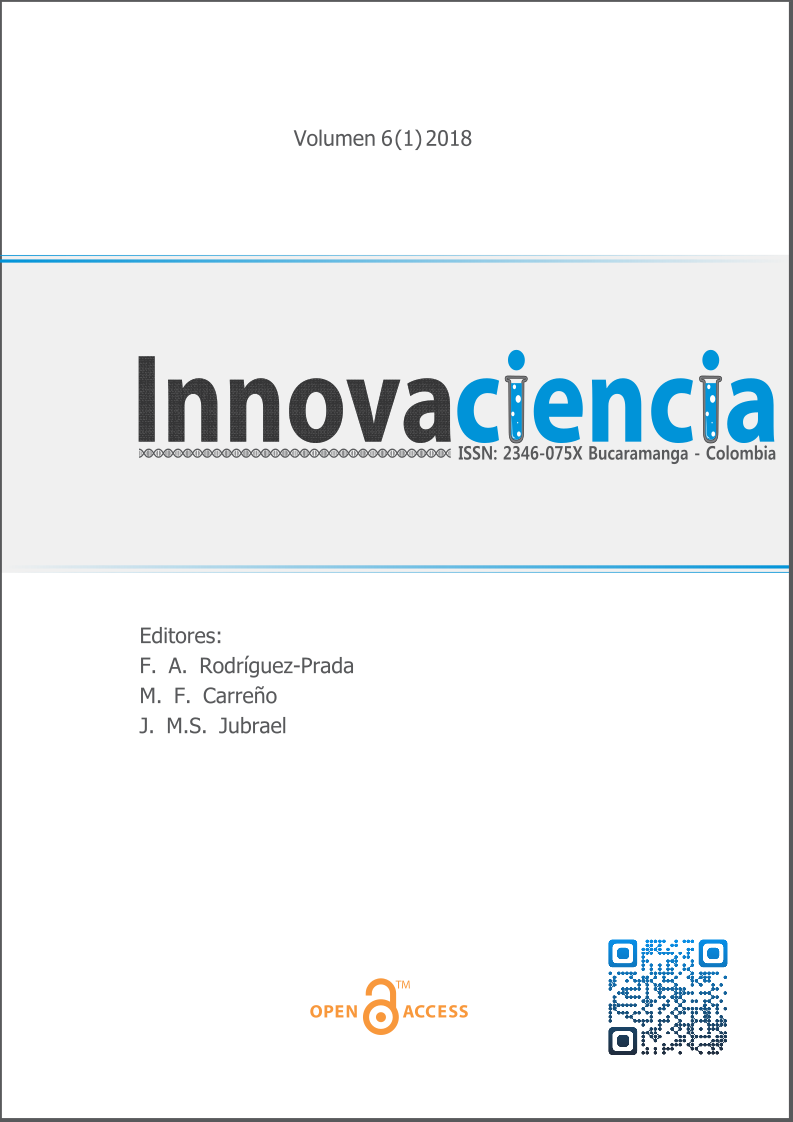Evaluación del rendimiento de bases de datos embebida: un estudio empírico
DOI:
https://doi.org/10.15649/2346075X.468Palabras clave:
Embedded devices, Embedded databases, Performance evaluation, Database operational performance, Test methodology.Resumen
Introduction: With the rapid deployment of embedded databases across a wide range of embedded devices such as mobile devices, Internet of Things (IoT) devices, etc., the amount of data generated by such devices is also growing increasingly. For this reason, the performance is considered as a crucial criterion in the process of selecting the most suitable embedded database management system to be used to store/retrieve data of these devices. Currently, many embedded databases are available to be utilized in this context. Materials and Methods: In this paper, four popular open-source relational embedded databases; namely, H2, HSQLDB, Apache Derby, and SQLite have been compared experimentally with each other to evaluate their operational performance in terms of creating database tables, retrieving data, inserting data, updating data, deleting data. Results and Discussion: The experimental results of this paper have been illustrated in Table 4. Conclusions: The experimental results and analysis showed that HSQLDB outperformed other databases in most evaluation scenarios.
Referencias
Deitel P. and Deitel H., Java™ How to Program, 10th Edition, Pearson, 2015.
Sarhan QI, Gawdan IS. Web Applications and Web Services: A Comparative Study. Sci J Univ Zakho [Internet]. 2018;6(1):35-41.. https://doi.org/10.25271/2018.6.1.375
Sarhan QI. Internet of things: a survey of challenges and issues. Int J Internet Things Cyber-Assurance [Internet]. 2018;1(1):40. https://doi.org/10.1504/IJITCA.2018.10011246
Gupta A, Ashraf M. Comparative analysis of encapsulated Java collection framework based on storage attributes. In: International Conference on Computing, Communication & Automation [Internet]. IEEE; 2015. p. 914-7.https://doi.org/10.1109/CCAA.2015.7148506
Oracle Website: https://docs.oracle.com/javase/tutorial, accessed 02/09/2018.
Togashi N, Klyuev V. Concurrency in Go and Java: Performance analysis. In: 2014 4th IEEE International Conference on Information Science and Technology [Internet]. IEEE; 2014. p. 213-6. https://doi.org/10.1109/ICIST.2014.6920368.
Das S, Kone V. Ruby under Scanner : Comparison with Java, University of California, technical report, 2010. Available from: https://pdfs.semanticscholar.org/8a06/b3a1694b7ee9ac3b2211b7cbc05efc7528ee.pdf
Hundt R. Loop Recognition in C ++ / Java / Go / Scala. Proc Scala Days. 2011;1(1):38-47.
Wendykier P, Borucki B, Nowinski KS. Large Java arrays and their applications. In: 2015 International Conference on High Performance Computing & Simulation (HPCS) [Internet]. IEEE; 2015. p. 460-7. https://doi.org/10.1109/HPCSim.2015.7237077
Costa D, Andrzejak A, Seboek J, Lo D. Empirical Study of Usage and Performance of Java Collections. In: Proceedings of the 8th ACM/SPEC on International Conference on Performance Engineering - ICPE '17 [Internet]. New York, New York, USA: ACM Press; 2017. p. 389-404. https://doi.org/10.1145/3030207.3030221
Sarhan QI, Gawdan IS. Java Message Service Based Performance Comparison of Apache Activemq and Apache Apollo Brokers. Sci J Univ Zakho. https://doi.org/10.25271/2017.5.4.376
Corral-García J, González-Sánchez J-L, Pérez-Toledano M-Á. Evaluation of Strategies for the Development of Efficient Code for Raspberry Pi Devices. Sensors [Internet]. 2018 Nov 21;18(11):4066. https://doi.org/10.3390/s18114066

Descargas
Publicado
Cómo citar
Número
Sección
Altmetrics
Descargas
Licencia
Todos los artículos publicados en esta revista científica están protegidos por los derechos de autor. Los autores retienen los derechos de autor y conceden a la revista el derecho de primera publicación con el trabajo simultáneamente licenciado bajo una Licencia Creative Commons Atribución-NoComercial 4.0 Internacional (CC BY-NC 4.0) que permite compartir el trabajo con reconocimiento de autoría y sin fines comerciales.
Los lectores pueden copiar y distribuir el material de este número de la revista para fines no comerciales en cualquier medio, siempre que se cite el trabajo original y se den crédito a los autores y a la revista.
Cualquier uso comercial del material de esta revista está estrictamente prohibido sin el permiso por escrito del titular de los derechos de autor.
Para obtener más información sobre los derechos de autor de la revista y las políticas de acceso abierto, por favor visite nuestro sitio web.



















